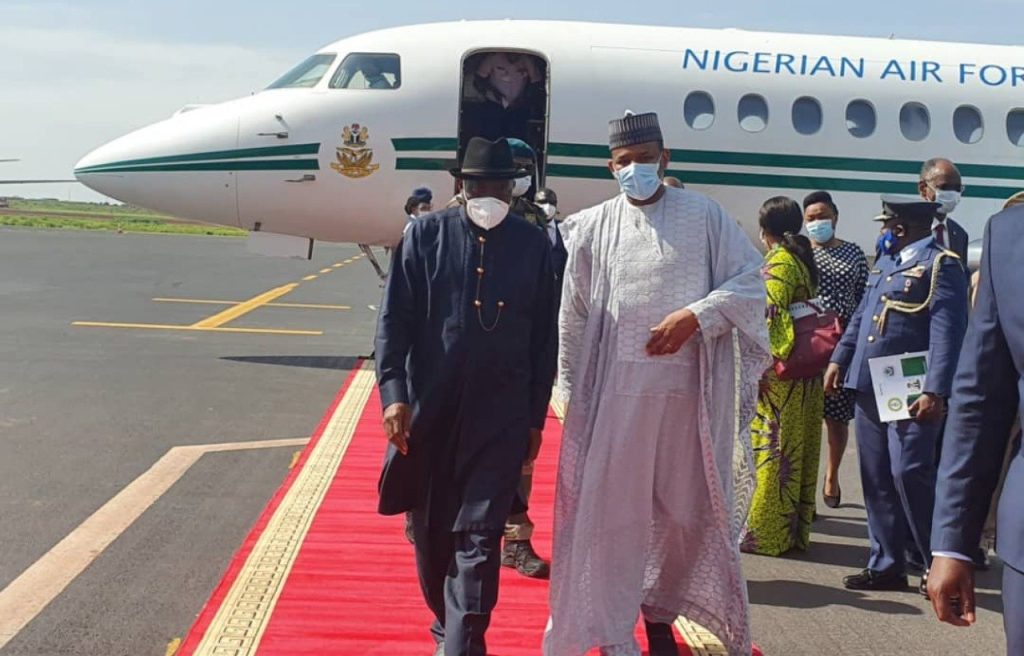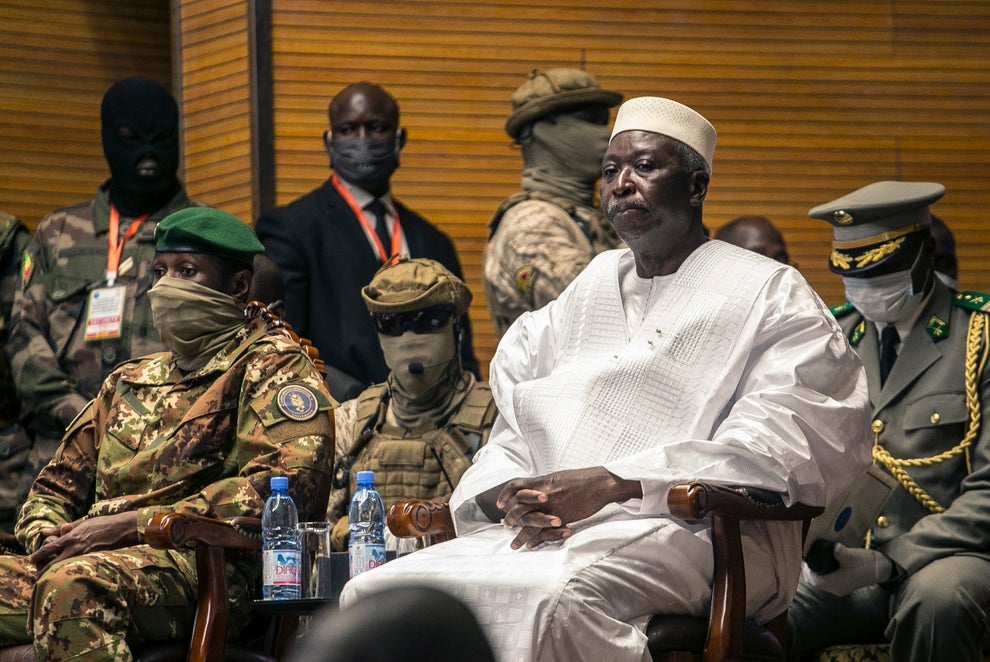In the middle of a raging pandemic, a group of Malian soldiers staged a forceful overthrow of an existing government, creating a moment of concern across the world.
On August 18, less than ten years after a coup d’etat in Mali, another one struck, rewriting the history of the country and sending shockwaves of surprise across the world. Finding no joy and satisfaction in the government, elements in the Malian Armed Forces began a strong revolt. The mutiny was ignited in the town of Kati at Sundiata Military Base, it swiftly moved to Bamako, the capital city of Mali where the takeover plan was finalised. After a constant exchange of gunshots between the rebel group and the soldiers, a breakthrough was finally made to seize the government.
The president, Ibrahim Boubakar Keita was detained alongside his cabinets, tanks, and armored vehicles patrolled the street. In no distant time, the President, Ibrahim Boubakar Keita, and the Prime Minister Boubou Cisse announced their resignation and dissolved the entire cabinet, “I do not wish for blood to be shed so I can maintain power,” he said. However, a coup has been completed but that’s not often where it ends and this time, it is no different.
Following the resignation of the President which happened on the 18th of August at night, the international community condemned the mutineers. Several leaders from different countries showed their verbal discontent against the junta: the President of France called for an immediate return of government to the people. China and the United States showed no support for the coup. Beyond the disapproval of countries, larger communities which include the African Union, European Union, and United Nation vehemently condemned the mutineers, “We call for the immediate freeing of prisoners, and a return to the state of law,”Charles Michel, EU Council chief said.
The air of approval appeared unanimous at Bamako. There was little to no protest against the coup masterminds. People, comprising of ecstatic youths, cheered in support of the mutineers all over the streets. From all indication, it appeared that the junta acted upon the interest of the people against a government which had been accused of corruption and leading the country into an abysmal economy, “We are not keen on power, but we are keen on the stability of the country, which will allow us to organize general elections to allow Mali to equip itself with strong institutions within the reasonable time limit, ” a spokesman of the group Colonel Ismael Wague made this speech shortly after the coup.
The coup has an underlying consequence, no doubt. It poses a greater security threat to a country that is struggling with elements of Islamic militant groups. Mali has a history of political disruption, this recurring instability in government has a far-reaching effect on economic development. For one, it creates incentives and morale for more insurgency to thrive with the aspiration to seize power. Mali is one of the poorest countries in Africa, stability in governance will be an important oxygen for economic development.
Generally, a coup is perceived as a force against democracy no matter its intention. History has exposed the obsession of past coup participators to power, their brazen reluctance to return the mandate to the public has tainted its image. A casual scenario always plays out thus: A group of military personnel would complete an overthrow against a democratic government with the promise to return sanity to the government before handing the baton to the civilian, but they would hold on to power longer than was agreed. It is against this backdrop that many communities, countries and subregional groups all over Africa had tailored their concern, They demanding the immediate return of power to the people. The Economic Community of West African States (ECOWAS) led by Goodluck Ebele Jonathan, the former President of Nigeria, made efforts to find a lasting solution for the situation in Mali.

When Goodluck Jonathan first touched down in Bamako for the reconciliation process, he pointed out that the focus was to restore normalcy amongst other interests, ‘We arrived in Bamako this afternoon to continue with the ECOWAS mediation & peace talks towards resolving Mali’s political crisis and restoring normalcy in this beautiful West African country. We’Il continue to engage Malian stakeholders until lasting peace is found.’
Hitherto, all the fifteen members of the Economic Community of West African States came to a resolution to close its borders, stop its financial flows with Mali as well as suspend the country from ECOWAS.
negotiation began between ECOWAS Envoys and the National Committee for the Salvation of People (NCSP), a governing council created after the putsch. The NCSP was led by Colonel Asimi who proclaimed himself to be the Chairman of the committee. Early signs of progress were visible when Boubakar Keita was released. Mr. Goodluck Jonathan assured that there was a general commitment to a lasting agreement at the meeting, ‘We were able to agree on some points but not on all points of discussion.’
The diplomatic acumen of the former president was the central pillar that championed the progress made to achieve the ultimate goal; the effort was acknowledged in the final memo released by the ECOWAS Head of State and Government on the 5th of October, 2020. As it stands now, the transition will last for 18-months starting from September 15th, 2020.

An agreement has been reached to nominate two civilians as President and Prime Minister in accordance with the decision of ECOWAS. NSCP has been dissolved. Mr. Bah N’Daw has been nominated as the civilian president of the transitional government and Muactar Ouane as Prime Minister. ECOWAS has lifted its sanction and promise to show support for the transition. While the ECOWAS team led by Goodluck Jonathan has established a seemingly lasting resolve to the political problem in Mali, it remains uncertain if the return to the civilian government — an integral right of the Malian people — will flourish without disruption.
Mali is a landlocked country which needs the support of its West African neighbours to continue to thrive especially at a time when the COVID19 Pandemic had affected world economies. The coup plotters who took over the civilian government had no choice but to succumb to the demands of ECOWAS.
Mali is also on a volatile landscape in Subsaharan Africa. The fact that it shares borders with states that are troubled by insurgents and marauders gave room for concern for its West African neighbours. Political instability could jeopardise the security of many interconnected borders leading to the easy flow of weaponry across the Sahara Desert, as well as militia groups from Libya.
The military junta had handed power to a transitional government, Col. Maj. Bah N’Daw, the former Defense Minister and retired soldier is the new transitional president while Col. Assimi Goita, head of the junta that stepped down has assumed a new position Mali’s new Vice President. They are to choose a Prime Minister and are expected to run the country for 18 months.
‘I am ready to make the ultimate sacrifice so that Mali becomes the country of our dreams, and to return the country to a properly elected president,” N’Daw said in his first speech to the nation.
In a recent media engagement with representative of Mali’s ambassador in Lagos, Nigeria, the representative of the Malian government thanked the government of ECOWAS for helping Mali retain peace in the country, but also expressed concern as regards the potential of such interventions to undermine the sovereignty of the State. Also, he said that most nations and personalities who have tried to resolve the Malian governance crisis have usually not come with clean hands and open-mindedness on the matter. This position shows clearly that the Malian military who planned the coup, who remains relevant in the transition government is dissatisfied but disempowered to renege against the ECOWAS.
The triggers of the Malian coup are in a lot of West African countries. There is a gross inequality, grinding poverty, corruption, and disobedience of the rule of law in many of the intervening subregional partners. As much as a military coup remains unattractive and portends danger to the freedoms of the people, it is both a sign and a posture that when people are tired of the incompetence, corruption, and brutality of any government, their maybe unpalatable changes.
Basit Jamiu and Femi Morgan
Photo Credits: Associated Press, Quick Info Naija, a.a.com, frontpageafrica

